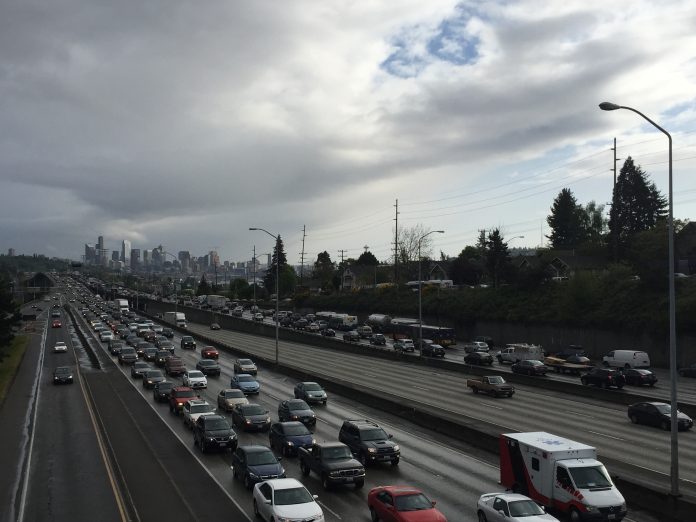Editor’s note: On Monday and Tuesday this week, two op-eds will appear on the publication making the cases for and against I-732, a proposed initiative that would create a carbon tax, reduce some taxes, and make other related changes to state law. The Urbanist did not weigh in on this measure when issuing the organization’s endorsements. Jon Alexander’s case for I-732 is here.
I-732, a “revenue-neutral” carbon tax, puts a price on carbon, but fails to create the alternatives to using fossil fuels, permanently short-changing investments in equitable transit-oriented development and low-carbon transportation necessary to slow climate change. We are at a crisis point, and we cannot afford to get it wrong. Urgency requires an effective and equitable carbon policy that works for all Washington State’s residents and creates opportunities for all to participate in a carbon neutral economy.
I-732 falls far short. Here’s why.
A successful climate policy needs to:
- Attract broad multi-sector support to ensure effective implementation;
- Reduce emissions quickly and decisively;
- Price emissions and reinvest that revenue into strategic clean energy investments that will accelerate the just transition to a clean energy economy; and
- Benefit workers and communities most impacted by the pollution.
I-732 failed to gain support from the Seattle Audobon Society, the Sierra Club, 350.org, Futurewise, Climate Solutions, Washington Businesses for Climate Action, as well as, progressive labor organizations and over 60 social justice and community based organizations, including Got Green. I-732’s insistence on revenue-neutral maintains the status quo. Status quo is the reality that people who live in South Park are expected to live 11 years less than residents of Laurelhurst.
A price on carbon without strategic clean energy investments won’t do enough to keep the carbon in the ground. Instead, it continues to burden those who can least afford it without the opportunity to participate in ushering in the clean energy economy.
I-732’s tax rebate for working families won’t be enough to clean the air for children in South Park who face higher asthma rates than other parts of the city. More data is showing that price alone is not enough to curb carbon pollution. Revenue neutral is a colorblind policy that assumes that we are all equally impacted by climate change and fossil fueled pollution. But we know that is not the case because the climate gap is real.
Leading with equity is not just politically correct. Leading with racial equity advances gains on carbon reduction better and more quickly because when you protect the worst hit, you require the deepest change. Black Lives Matter has taught us this. The Lummi Nation has taught us this. Instead, the authors of I-732 chose an incremental market approach that has never served low-income and communities of color well.
Washington voters, especially communities of color, are more ready to support climate action, but we have to get carbon pricing and a smart use of its proceeds right the first time.
I-732, as designed, gives tax breaks to Boeing and other polluters without accountability to actual pollution reduction, creates negative revenue impact on our state’s budget, and leaves fence line and front line workers and communities of color on the sidelines. It doesn’t have to be this way. We can and must get climate policy right in Washington State.
That is why I am voting no on I-732.
Rebecca Saldaña, Executive Director, Puget Sound Sage and a Ms. Foundation Public Voices Fellow with The OpEd Project.



